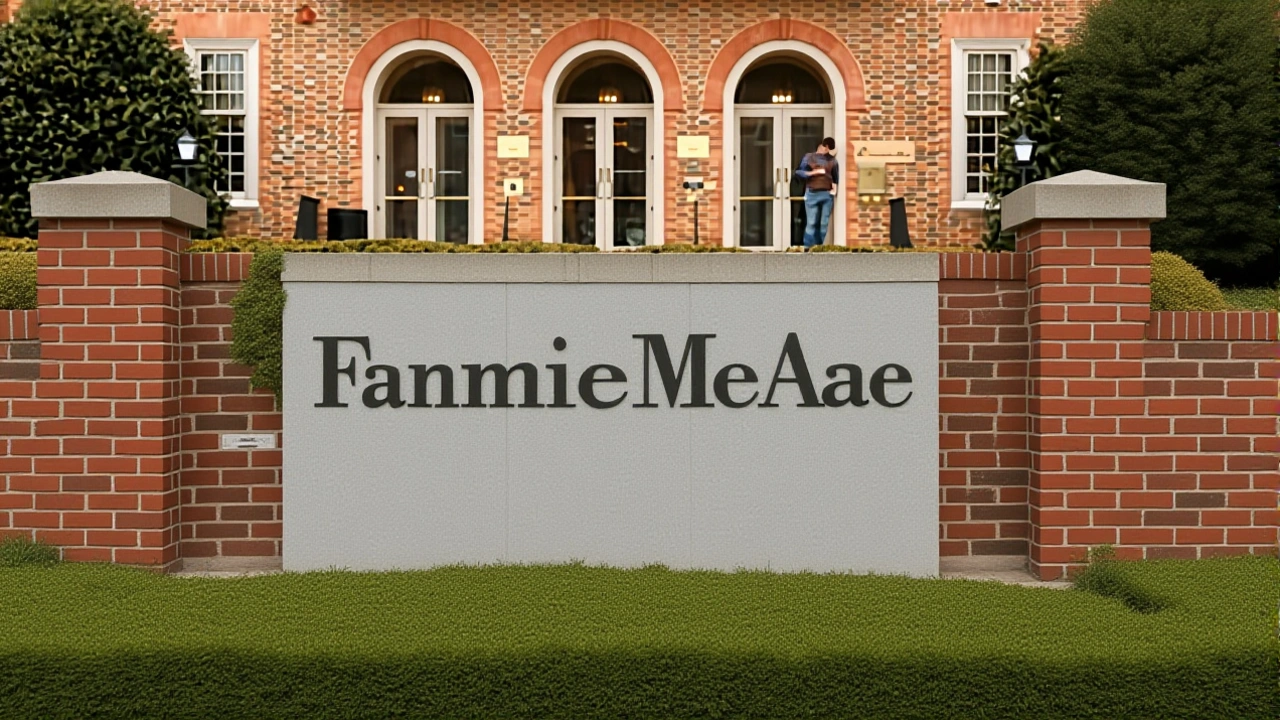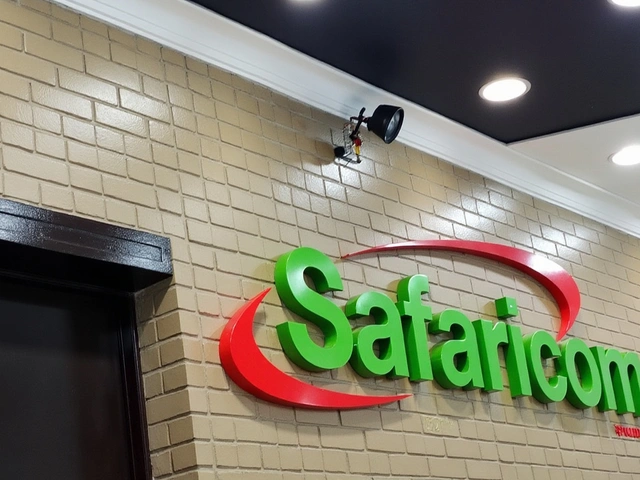FHFA Closes Fannie Mae, Freddie Mac NY Offices Over Letitia James

When Letitia James found herself at the centre of a storm with the nation’s two biggest mortgage‑backed securities giants, the Federal Housing Finance Agency (FHFA) didn’t waste any time. On October 1, 2025 the regulator ordered the permanent shutdown of the New York State offices of Fannie Mae and Freddie Mac, citing what officials called the Attorney General’s "corrupt and dangerous business practices." The move is unprecedented, and its ripple effect could reshape mortgage financing in the nation’s biggest housing market.
Background: A Growing Federal‑State Clash
The drama didn’t start with a single office door. It traces back to a series of investigations into James’s personal real‑estate filings. Prosecutors allege she misrepresented a New York property, claiming it housed four units when, on paper, it actually contained five. That discrepancy, they say, let her shave off thousands of dollars in mortgage costs – a classic case of mortgage fraud.
In early 2024, the Attorney General’s office secured a civil verdict against former President Donald Trump for fraud, netting the state more than $350 million in penalties. The win made James a lightning rod – praised by some, reviled by others, especially Trump’s allies.
Enter FHFA Director Bill Pulte. In July 2025 he filed a criminal referral against James, alleging the same paperwork discrepancies rose to the level of fraud. While a grand jury has yet to indict, the referral gave the agency a foothold to act.
What the Office Closures Entail
The two locations, tucked just blocks away from Midtown Manhattan’s bustling corridors, were more than just desks and coffee machines. They housed roughly 200 employees – loan officers, compliance analysts, and support staff who handled a sizable chunk of New York’s $1.2 trillion mortgage pipeline.
According to a senior FHFA source, the physical sites are now empty, but the work isn’t stopping. "We'll still employ New York residents, and we'll still continue to do mortgage loans in New York, of course," the source told Fox News Digital. "But we are going to eliminate our physical presence. And to the extent that we have leases, we are going to sublease those."
In practical terms, the two GSEs will shift to a virtual‑first model. Employees will log in from remote locations, and the agencies will rely on existing data centers and cloud services to keep the loan‑processing engine humming. The subleasing plan could free up an estimated $12 million in annual operating costs – money FHFA says will be redirected toward compliance upgrades.

Reactions From Stakeholders
Industry insiders are split. Erik Siebert, who briefly served as Acting U.S. Attorney for the Eastern District of Virginia, warned that the closure could "send a chilling signal to lenders about the volatility of regulatory environments." He recalled stepping down after reportedly encountering White House pressure to push the case forward despite shaky evidence.
Conversely, a spokesperson for the New York Bankers Association said the move "doesn't change the fundamentals of mortgage availability" but urged the FHFA to "ensure that borrowers aren’t caught in a bureaucratic tug‑of‑war that could delay approvals."
Local politicians voiced concern, too. A Democratic assembly member from Brooklyn noted that removing a physical foothold might reduce transparency, while a Republican senator from upstate New York hailed the decision as “a bold stand against overreaching state officials.”
Implications for the Mortgage Market
Both GSEs together guarantee over $2 trillion in home loans nationwide. Pulling their bricks‑and‑mortar presence from the Empire State could nudge lenders to seek alternative channels – private‑label securities, direct bank financing, or even emerging fintech platforms.
Data from the Mortgage Bankers Association shows that New York accounts for roughly 9 percent of all Fannie and Freddie‑backed loans. If the virtual model slows processing by even 10 percent, borrowers could face longer wait times and potentially higher rates, especially in the high‑priced Manhattan market.
On the flip side, the cost savings from subleasing might allow the GSEs to offer slightly more competitive pricing elsewhere, a benefit that could offset some regional strain.

What Comes Next?
For now, the FHFA says it will monitor the transition closely. An internal audit slated for early 2026 will assess whether the remote model meets the agency’s “operational stability” benchmarks.
Meanwhile, prosecutors in New York continue to review James’ alleged mortgage filings. No criminal charges have been filed yet, but the criminal referral remains on the table. If an indictment does materialise, it could reignite the political firestorm that first ignited this saga.
Borrowers, lenders, and state regulators alike are watching closely. The next few months will likely determine whether the virtual‑first experiment becomes a new norm for federal housing finance or a cautionary footnote in an ongoing power struggle.
Frequently Asked Questions
How does the closure affect New York homebuyers?
The mortgage‑backed securities from Fannie Mae and Freddie Mac will still be available, but processing may shift to a remote model. Experts expect slight delays – perhaps a few extra days – and a modest uptick in rates for high‑priced properties if capacity tightens.
What legal actions are pending against Letitia James?
A criminal referral has been filed by FHFA Director Bill Pulte, alleging mortgage fraud related to James’ property filings. No formal charges have been filed yet; prosecutors are still reviewing the evidence.
Will other states see similar office closures?
So far, the FHFA says the New York action is specific to the dispute with the state Attorney General. However, officials admit they are evaluating the broader regulatory climate, so a similar approach could be considered elsewhere if tensions rise.
How many employees were impacted by the shut‑downs?
Approximately 200 staff members across both offices were affected. The FHFA has confirmed they will remain employed, transitioning to remote work arrangements.
What does this mean for the future of federal housing finance?
The episode underscores growing friction between federal agencies and state regulators. It may prompt the FHFA to reconsider how it balances compliance, operational presence, and market stability, potentially accelerating digital‑first strategies across the nation.






PRAVIN PRAJAPAT
October 8, 2025 AT 02:19Closing NY offices is a reckless power play that undermines market stability.
srinivasan selvaraj
October 12, 2025 AT 17:26It feels like a personal betrayal of every homeowner who trusted the system to protect their dreams.
The sheer audacity of shutting down physical locations in the financial capital is astonishing.
One can sense the echo of desperation behind the regulator’s decision.
Perhaps the fear of losing face to a high‑profile attorney general drove this overreach.
Meanwhile, the employees are left in limbo, staring at empty desks that once buzzed with activity.
The virtual‑first model sounds efficient on paper but masks the human cost.
Families who rely on in‑person advice may now face a cold digital interface.
Every delay in loan processing can translate into missed opportunities for buyer‑sellers.
It is not merely a logistical shift; it is a symbolic retreat from accountability.
When regulators hide behind clouds, transparency suffers.
Our mortgage market needs stability, not theatrical power plays.
The stakes are high for New York’s already pricey housing market.
Even a few extra days in processing can spike interest rates for marginal borrowers.
History will judge whether this move was a necessary modernization or a reckless gamble.
Ultimately, the people who are most vulnerable will feel the repercussions.
We must keep a vigilant eye on how these remote operations unfold.
Shivam Kuchhal
October 17, 2025 AT 08:32While the concerns raised are understandable, it is essential to recognize the potential for resilience within the system.
Adapting to a virtual model can streamline processes and reduce overhead costs, which may eventually benefit borrowers.
The FHFA’s commitment to monitor the transition indicates a measured approach.
We remain optimistic that the integrity of mortgage financing will be upheld.
Adrija Maitra
October 21, 2025 AT 23:39Wow, the city’s skyline won’t miss a couple of empty rooms, but the people living in those shadows might feel the chill.
It’s like watching a drama unfold where the stage lights go out on the main actors.
RISHAB SINGH
October 26, 2025 AT 13:46Stay steady, folks – the remote setup is just a new workspace, not a goodbye to support.
We’ll get through this together.
Deepak Sonawane
October 31, 2025 AT 04:52The closure exemplifies a myopic regulatory overreach, predicated upon a superficial interpretation of jurisdictional authority, thereby engendering systemic inefficiencies and perturbing the equilibrium of capital flows within the preeminent mortgage conduit.
Suresh Chandra Sharma
November 4, 2025 AT 19:59hey dude the remote shift might be ok but dont forget the real peopple need real help not just some cludgy online form.
make sure they got proper training and support lol.
ANIKET PADVAL
November 9, 2025 AT 11:06It is incumbent upon us, as custodians of national financial integrity, to denounce any action that appears to be motivated by partisan vendetta rather than principled governance.
The FHFA’s decision, while couched in regulatory language, smacks of an attempt to weaponize administrative power against a political adversary.
Such conduct erodes the foundational trust that underpins our housing finance system.
Moreover, the circumvention of due process in favor of an expedient closure undermines the rule of law.
We must vigilantly safeguard that policy decisions arise from empirical analysis, not from the throes of political theater.
Only through steadfast adherence to procedural fairness can we assure the continued stability of mortgage markets.
Any deviation sets a perilous precedent, inviting future incursions into the domain of fiduciary responsibility.
It is therefore paramount that oversight bodies intervene to restore balance.
Let the data speak, not the whims of any individual office.
Abhishek Saini
November 14, 2025 AT 02:12i think we shoud keep an eye on the the data and make sure the remote transition doesnt break anything.
its imoprtant to stay flexible and support each other.
sangita sharma
November 18, 2025 AT 17:19What a theatrical showdown for a handful of desks!